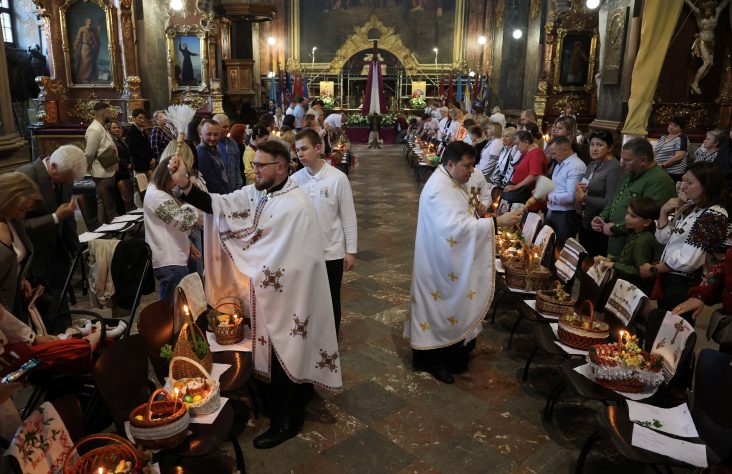January 31, 2024 // Perspective
The Thin Line Between Joy and Sorrow Amidst Loss
St. Philip Neri is widely known as “the joyful saint.” Famously, he encouraged joy as the way of Christian perfection, saying, “A joyful heart is more easily made perfect than a downcast one.” And, of course, in many modern images of the saint, he is pictured laughing and smiling. But does this leave any room for sorrow in the Christian life? All of us on this side of Eden know that sorrow will come for us at one time or another. So how do both sorrow and joy go together? Let’s examine St. Philip’s heart.
As mentioned in my last column, after St. Philip experienced the infilling of the Holy Spirit while praying in the catacombs of Rome, his heart physically expanded to such a degree that he literally cracked two ribs from the inside. From this, we can see both joy and sorrow simultaneously abiding in the holy heart of St. Philip.
On the one hand, the infilling of the Holy Spirit was the cause of St. Philip’s abiding joy. Through the indwelling presence of the Holy Trinity, Philip was capacitated to have the Triune love of God constantly abiding in his soul. This means that Philip was constantly in the presence of Love Himself. At the same time, we know that Philip’s heart (and ribs) experienced great pain from the infilling of the Spirit. To his friends, he would say, “I have been wounded by love!” while also admitting that the love of God was too great for him to bear, and he feared he would die from it!
We can see in the heart of St. Philip that the line between joy and sorrow is razor thin. The two are held simultaneously in the heart, which overflows with love. This is most true in Our Lord’s Most Sacred Heart. There, we see the burning furnace of Divine Charity as the source of all joy, which was pierced on account of our sinfulness. Our Lady, mirroring her divine Son, shows this as well. At the same time her Immaculate Heart was experiencing the sword of her Son’s crucifixion, she remained the spouse of the Holy Spirit and experienced the joy of the Spirit’s abiding presence.
A few weeks ago, I experienced this same simultaneity of both joy and sorrow in the depths of the human heart. I went to a funeral for the father of a dear priest friend of mine. As you can imagine, there was real sorrow at the loss of this priest’s father. And for a priest, the loss of his parents is particularly piercing since he has no physical family of his own. Yet, before the funeral began, my friend invited me and a dozen or so other priests to come back with him to pay our final respects at his father’s casket – saying that we were his “immediate family.” In that moment, joy began to glow amidst the cloud of sorrow. While mourning the loss of his father, this priest was abiding in the presence of his beloved brother priests. The result was that our priestly hearts were concurrently pierced by both joy and sorrow.
At the cemetery, this same phenomenon repeated itself. As the father of this priest was receiving military honors, one of the military personnel leading the ceremony led a prayer for the deceased and his family. During that time, I locked eyes with my friend, and a smile came to both of our faces. Both of us knew the irony of the moment. More than a dozen priests stood near our beloved friend, having just offered the greatest possible gift for his father in the saving sacrifice of the holy Mass, while a stranger was offering a prayer hoping to bring some semblance of consolation. While this stranger’s words of prayer could certainly bring a sense of consolation, they could not bring joy. Joy can only result from being with the beloved – that is, from real friendship. And for our priest friend, it was clear his friendships with his brother priests was the real sense of joy amidst the loss of his father.
For St. Philip, he recognized this need for friendship in order to persevere in joy in the midst of life’s sorrows. In part, that is why he began the Oratory – so that brother priests could abide in friendship with one another as they ministered in the Church. In our current age, so often plagued by isolation and loneliness, I think the way of St. Philip offers a model of heavenly joy – by fostering a life of communion now so that we can abide in heavenly communion forever.
Father Brian Isenbarger is Parochial Vicar at St. Vincent de Paul Church in Fort Wayne.
The best news. Delivered to your inbox.
Subscribe to our mailing list today.






